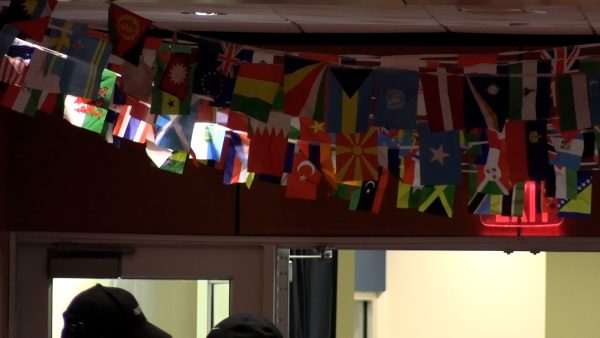The price of education
August 30, 2006
Rising textbook costs lead students away from stores
Students spend between $801 and $904 on textbooks each year, according to the College Board.
“In the last 20 years, there has been about a 200 percent increase in textbook costs,” said Hal DuBois, manager of DuBois Book Store in Kent.
That can add up to a lot less spare change.
“I have a scholarship that is $300, but even with that, I usually spend at least $200 out of my own pocket,” said sophomore biology major Stephanie Miller.
DuBois said new editions are one reason why prices keep rising, because the new editions make it harder to purchase used books. Although certain topics, such as genetics, demand frequent updates, he said he thinks many textbooks are revised needlessly.
Additionally, DuBois said textbook publishers’ favorite “game” is to bundle materials, only allowing students to purchase multiple materials rather than single items.
These soaring textbook costs have left many college students searching for alternative ways to purchase textbooks.
Kent State students have the advantage of having more than one bookstore; therefore, there is competition for lower prices, DuBois said.
Even so, many students have already turned to online discount textbook providers, such as Amazon.com and Half.com.
Junior interior design major Shannon Phillips said she buys all her textbooks online at Half.com, a division of eBay that sells new and used books.
The University Library also offers students an opportunity to check out textbooks through the KentLink, OhioLink and Interlibrary Loan systems. These systems allow students to request books from colleges across the nation and Ohio, as well as other Kent State campuses.
However, the library systems do not have a wide variety of textbooks, said Renee Barney, a graduate references assistant at the library.
“The libraries generally try not to have the textbooks so people don’t fight over them,” said Barney.
Graduate student Jon Longacre purchases the majority of his textbooks through a listserv he belongs to as part of the Library and Information Sciences College. Then, when finished with them, he resells his textbooks to recoup a portion of his money.
“You can usually get almost as much for the textbook as you paid,” Longacre said.
The Washington Post recently reported about another new textbook option for students.
The Minnesota-based Freeload Press, a startup company, allows students to download free books in a PDF file that includes advertisements from companies such as FedEx, Kinko’s and Pura Vida coffee. The selection is limited because the major textbook publishers have not yet adopted the advertising concept.
Contact news correspondent Jackie Valley at [email protected].























